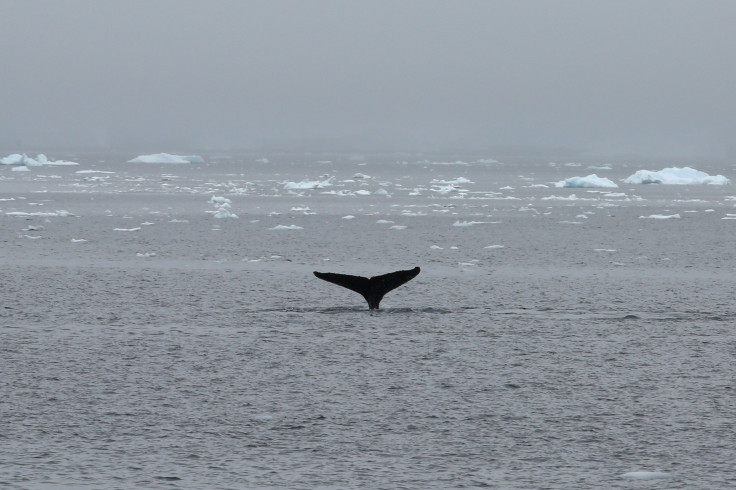122 Pregnant Whales Killed By Japan For 'Scientific Research,' Conservationists Condemn Slaughter

Japanese hunters in the Antarctic killed more than 120 pregnant minke whales last summer, reports said. The annual hunt prompted outrage among conservationists, condemning the slaughter as "abhorrent."
A newly released report showed 333 minkes were captured and killed by Japanese fishermen during the 12-week expedition in the Southern Ocean. Of the total killed, more than 120 were pregnant whales.
Japan said its whaling program is for scientific purposes, despite signing the International Whaling Commission's moratorium on its controversial "JARPA II" whaling program in 2014.
The Humane Society International (HSI) reported in 2015, Japan rebranded "JARPA II" claiming the new program was for "scientific research," thus exempting the hunt from the ban.
Japan's Fisheries Agency defended the slaughter, saying it was not targeting pregnant whales.
"We catch whales totally at random," said Yuki Morita, an official in charge of whaling at the agency. "The IWC scientific committee recognises the number of whales we hunt is at the level that is necessary for research, but not above the level that would hurt the conservation of the stock."
"We'd like to stress here that the high ratio of pregnant females is noteworthy... This shows there are many mature females, suggesting we can expect growth in resources stock," Yuki told Agence France-Presse.
A representative for the HSI expressed the organization's anger over the recent slaughters.
"The killing of 122 pregnant whales is a shocking statistic and sad indictment on the cruelty of Japan’s whale hunt," Alexia Wellbelove, Senior Program Manager at Humane Society International, said in a statement. "It is further demonstration, if needed, of the truly gruesome and unnecessary nature of whaling operations, especially when non-lethal surveys have been shown to be sufficient for scientific needs."
“Whales are already facing substantial threats including bycatch in fisheries and marine pollution. Significant conservation efforts are underway worldwide to address these issues, so the least Japan could do is put away the harpoons," she continued. "The continued killing of any whales is abhorrent to modern society, but these new figures make it even more shocking. We look forward to Australia and other pro-conservation countries sending the strongest possible message to Japan that it should stop its lethal whaling programs."
The Japanese Embassy has not yet commented about the issue and Tokyo insists its program is carried out "in accordance with the International Convention for Regulation of Whaling." Japan also said it will hunt about 4,000 whales over the next decade.
Tony Burke, Australia's shadow minister for the environment, called on the government to stop the annual hunt.
"There is nothing scientific about harpooning a pregnant whale, chopping it up and putting it on a plate. Japan’s position on this is absurd and the Australian government must not be silent," he said.
© Copyright IBTimes 2025. All rights reserved.





















